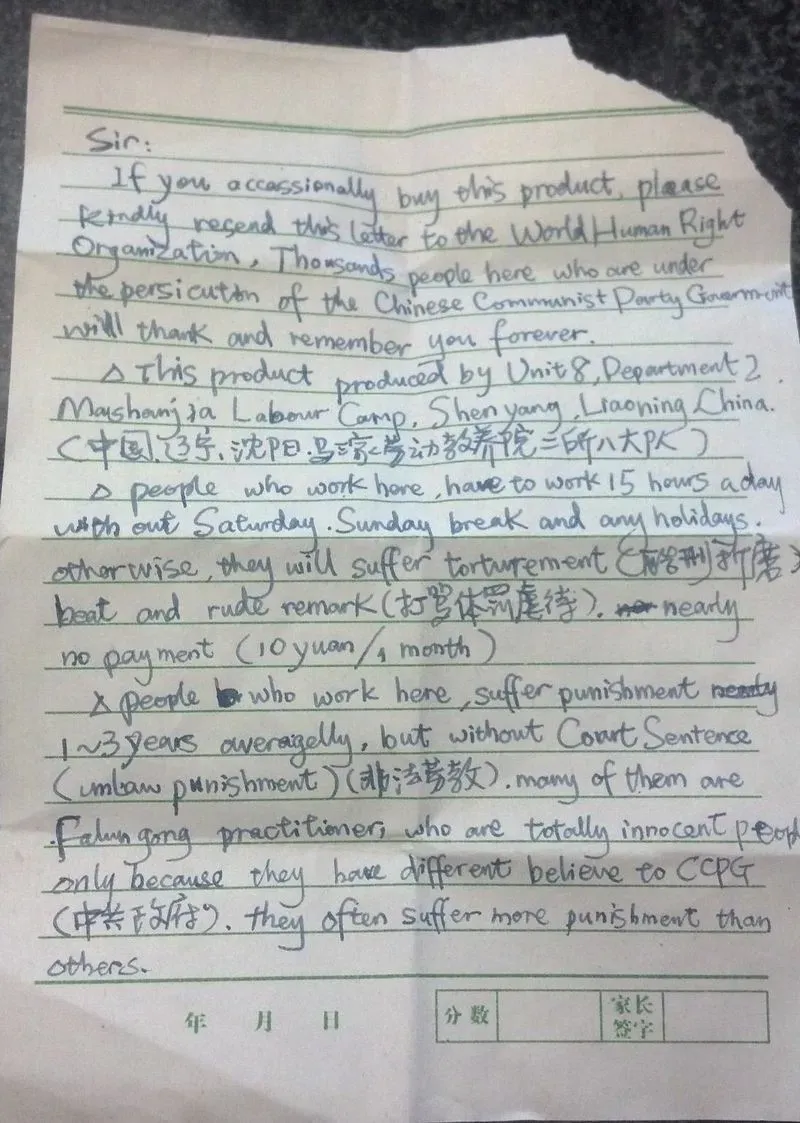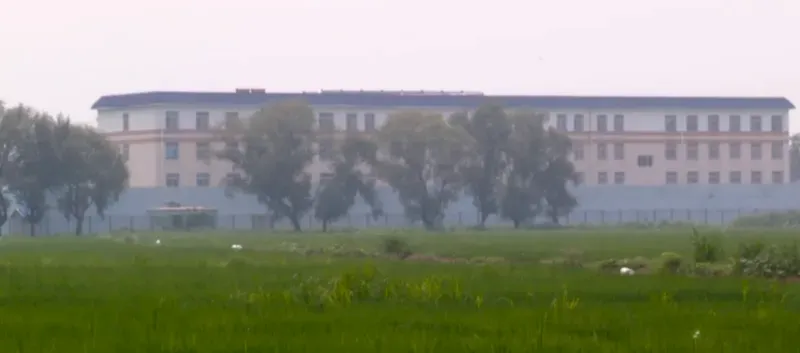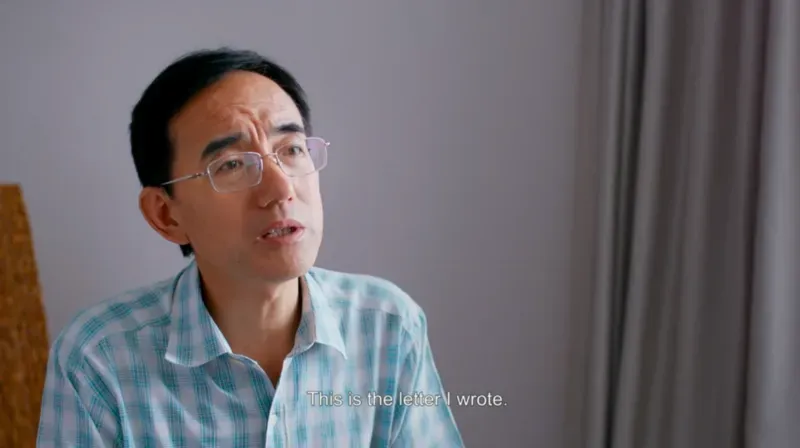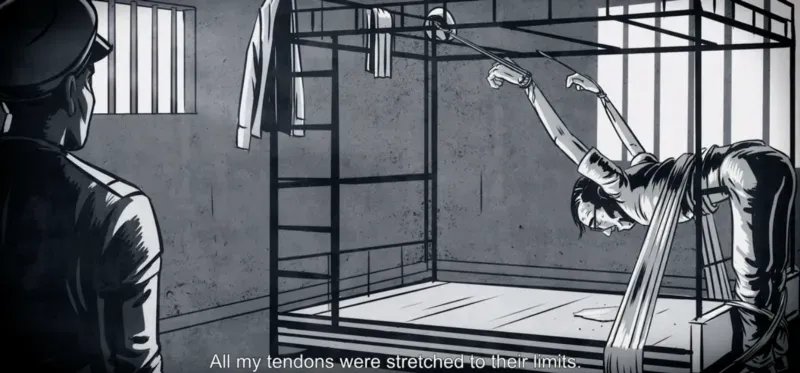Oregon Mom Discovers Haunting Letter Inside Box of Halloween Decorations

Julie Keith stared at the shadowy tombstone in front of her. There were three large letters spelling out “RIP” near the top that seemed irregular, spaced unevenly, and painted with crude, dark-red — like blood — paint. The work was sloppy, definitely not fit for a royal death; a pauper perhaps, but even that was hard to believe. Julie saw no identifying marks. There was no name, date of death, or anything signifying someone was actually “resting in peace,” and if someone was, Julie thought, it must be a serious challenge with this creepy headstone looming above them.
Julie stared at the tombstone for another moment; she had had a tough decision to make, but now she knew what she needed to do.
She reached both arms and retrieved some of the other ghoulish pieces in front of her; a handful of spiderwebs in one hand, and with the other, a human skull. With a careful and steady hand, she deposited the plastic human skull and jumbo bag of fake spiderwebs back on the K-Mart shelf.
She was going with the “Totally Ghoul Tombstone 17-piece Graveyard Kit” this year, and for only $29.99, she knew it was a helluva deal.

Little Shop of Horrors
It would take Julie Keith an entire year to find the letter hidden in the box, but once she did, her life would never be the same.
For Julie, Halloween usually consisted of trick-or-treating with her daughters, but this year, she had also wanted to add a few ghoulish decorations to her front lawn. Her youngest daughter’s fifth birthday was a few days away, and the thought of her helping mom put up a few scary items out front made her smile.
Julie opened the 17-piece graveyard kit she had purchased in 2011, and she saw the paper — folded in eights — tucked between two styrofoam headstones.

Scribbled on a single sheet of paper and written in both English and Chinese was a message that read:
“Sir:
“If you occasionally buy this product, please kindly resend this letter to the World Human Right Organization. Thousands people here who are under the persicution [sic] of the Chinese Communist Party Government will thank and remember you forever.”
The graveyard kit, the letter read, was made in unit 8, department 2 of the Masanjia Labor Camp in Shenyang, China.
Chinese characters broke up choppy English sentences.
“People who work here have to work 15 hours a day without Saturday, Sunday break and any holidays. Otherwise, they will suffer torturement, beat and rude remark. Nearly no payment (10 yuan/1 month).”
Ten yuan is equivalent to $1.61.
“People who work here, suffer punishment 1–3 years averagely, but without Court Sentence (unlaw punishment). Many of them are Falun Gong practitioners, who are totally innocent people only because they have different believe to CCPG. They often suffer more punishment than others.”
Fine Print
At first, Julie Keith didn’t know what to do. Was this a joke? An elaborate prank? Or was this something else? Perhaps it was a desperate cry for help, a shot in the dark, a genuine message in a bottle.
But what could she do? She’s just a mother and a wife in Oregon, not a reporter or an undercover journalist. She couldn’t help this person. Perhaps, she thought, it was not her place to intervene.
Julie flipped over the box. Her eyes dragged past “Eerie Graveyard Lights and Sounds” and “Family Fun — ages 8 and up” — words that would normally catch her attention, but now seemed insignificant. She gazed past these diversions, down at the bottom of the box — nearly off all together — to the smaller-sized font type. The ‘fine print’ — like always — was so tiny and miniscule, there was really no use in wasting their ink to print it; but now, this once-puny text engulfed her entire sight.
Now she could see nothing but these three words.
She slowly read those three words aloud.
“Made in China.”
The words would forever haunt her if she did nothing at all. She knew what she needed to do; she had made her decision. The world would see this letter.
Falun ‘Gone’
On July 20, 1999, the CCP (Chinese Communist Party) launched a campaign to eradicate the Falun Gong, a religious movement founded in the early 1990s that involves meditation, slow-moving energy exercises, and breathing regulation.
The letter stuffed inside the graveyard kit mentioned — in fact, it ended with, “many of them are Falun Gong practitioners, who are totally innocent people only because they have different believe to CCPG. They often suffer more punishment than others.”
Ever since the CCP began demonizing Falun Gong and its over one-hundred million followers, practitioners have faced public persecution, torture, murder, and false imprisonment. Some even widely believe “beyond doubt” that the CCP has been using Falun Gong members for illegal organ harvesting.
The letter had originated from the Masanjia Labor Camp, a notorious “prisoner” re-education camp in Shenyang, China, where most of the inmates were Falun Gong members. China has always vehemently denied the existence of labor camps, however, the evidence has been overwhelming.

It is quite ironic that it was a bloody graveyard kit that I purchased — knowing that the people who made these kits were desperate and bloody themselves. — Julie Keith
Not knowing who to contact, Julie uploaded a photo of the letter to her Facebook page, unsure if anyone would even respond. To her utter amazement, thousands — and soon, millions — would read the same letter that she unfolded just days earlier. The responses, comments, and support were unanimous; the world wanted justice.
one friend wrote
“What’s weird to me is someone is actually thinking about, and praying something comes of this … every day of their life since they sent it out,” another wrote. “Makes me sad this even happens”
Julie’s post had gained traction, and soon the world’s largest news outlets took notice. Her letter had gone viral.
Now what?
Courage
Julie would eventually meet the man who wrote and stuffed the now-famous letter in between the styrofoam tombstones that made up the 17-piece graveyard kit, but first, “Mr. Zhang” — the author — had to find his own courage and put a face to the words already read by millions. Doing so, he was risking his life and the safety of his family. His letter had done the impossible, and the public needed to hear what was really happening in one of China’s most notorious labor camps, Masanjia.

They had arrested Zhang shortly before the 2008 Olympics, when the CCP had increased their terror campaigns targeting Falun Gong members.
“For people who have never been there, it’s impossible to imagine,” he said. “The first thing they do is to take your human dignity away and humiliate you.”
The CCP is running labor camps under the guise of Lao Jiao — “re-education through labor” — a system, which, according to Pu Zhiqiang, a prominent Beijing-based lawyer, is “against China’s own constitution and laws.”
In 2009, it was estimated that China had three-hundred and twenty labor camps, each bringing in big annual profits. The Masanjia Labor Camp earned the Chinese government over one-hundred and sixteen thousand yuan in profit per year ($16 million USD).
Risky Business
In the excellent documentary — Letter From Masanjia, Zhang talks of being beaten, tortured, sleep deprived, and forced to work until his hands bled to make cheap Halloween decorations for Western consumption.
“Making products turned out to be an escape from the horrible violence,” he said. “We thought we could protect ourselves, and avoid verbal and physical assaults as long as we worked and did the job well.”
Zhang would end up writing twenty letters to send out, but to do this, he needed to be as discreet as possible.
“I hid it in a hollow space in the bed stand — and only got time to write late at night when everyone else had fallen asleep,” he recalled. “The lights were always on in the camp and there was a man on duty in every room to keep an eye on us.”
Demonstrating his awkward position in bed, he continued: “I lay on my side with my face toward the wall so he could only see my back. I placed the paper on my pillow and wrote on it slowly.”
Each letter took several nights to finish, only able to write a few words per night, keeping his movements so miniscule to not alert the guards. Zhang disregarded sleep, and his own life to write twenty letters, hoping just one would make it into the hands of someone who could help expose the truth.
Other inmates helped Zhang hide the letters, but doing so increased the risk of being exposed. A guard had confiscated one letter before one inmate could hide it. Guards mercilessly beat the prisoner and tortured him to near death with electroshock; They forced the other inmates to watch. Guards tortured this man for two days, but never gave up Zhang’s identity as the letter writer.
Zhang’s letter helped expose the inhumanity that the Chinese government still continues to inflict on its citizens. Soon after, undercover footage was leaked showing the horrible conditions, torture, and the mistreatment of prisoners as a staple in Chinese labor camps.
True Horror
Every day, there are more former prisoners speaking out against the CCP and whistleblowing their own experiences inside the Chinese labor camps.
Liu, arrested for her “defiant attitude” had nearly died several times inside the prison walls. Guards ordered other inmates to beat her with stools and other items so viciously that she lost consciousness. “But I still had to work after I regained consciousness,” she said. “This place was Hell on Earth.”
Another former prisoner was arrested for “disrupting social justice” and faced similar torture. She served nearly two years for repeated petitioning government officials about bringing punishment to the men who had “raped her 11-year-old daughter.”
Another was sent to the camps and brutalized for retweeting a post that did not conform to the Chinese Communist system.
Mr. Zhang talks of his own torture after he refused to renounce his belief in Falun Gong.
“…they tied my hands with ropes, and then tied my waist to the bed with a bed sheet. I felt my body being torn limb from limb.”
Guards tortured Zhang for two weeks, during which he fell unconscious from the sheer pain inflicted on him. Medical help came only to bring him back to consciousness so that his torture could continue further.

Responsibility
The Chinese government eventually shut down Masanjia, thanks to Zhang’s letter, Julie’s courage to take it to the public, and the many whistleblowers who exposed the labor camps. But there are still hundreds that continue to operate at full capacity today.
The Falun Gong are not the only ones in the camps; they are now joined by Uyghur Muslims and bring to market not only fake tombstones, but so many other trinkets we buy. The only way to stop this persecution is to avoid buying products “Made in China,” telling others to do the same, and educating ourselves on what the CCP is really up to. To do this, I suggest the documentary, “Letter from Masanjia.”





